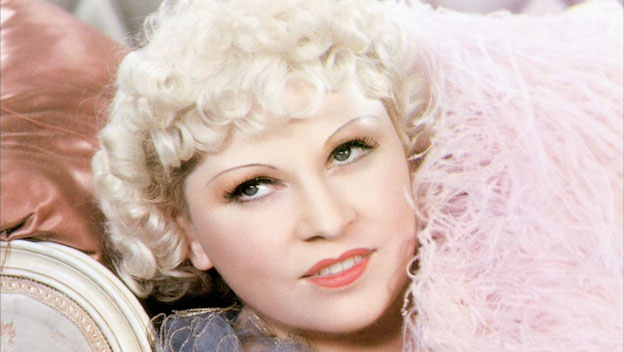She said that Good Girls Go to Heaven (Bad Girls Go Everywhere): Who is Mae West?
In the 1930s, Mae West creates the politics and aesthetics of slat-slutdom and questions the roles in which women are degraded. She entertains while criticizing Puritan morality. She wants the “right to libertinism” for herself and women.

In the thirties, when feminist criticism had not yet begun to disturb the cinema, Mary Jane West, who alone was disturbing enough and challenged the hypocritical understanding of morality, was born in Brooklyn on August 17, 1893.
She changed her name to Mae because she thought the letters a and e looked good together. At a young age, she performed in theaters and vaudeville shows in Brooklyn.
Mary Jane "Mae" West (August 17, 1893 – November 22, 1980) was an American actress, singer, comedian, screenwriter, and playwright whose career spanned over seven decades. Considered a sex symbol, she was known for her breezy sexual independence and her lighthearted bawdy double entendres, often delivered in a husky contralto voice. She was active in vaudeville and on stage in New York City before moving to Los Angeles to begin a career in the film industry.
Her first play on Broadway, which she wrote and performed in 1926, was a sex comedy called Sex, whose actors were all transvestites. The play causes trouble on Broadway, Mae is imprisoned, and then the "scandal" goes beyond Broadway. Thus, Mae's path is opened to Hollywood, which has a penchant for scandals. Film offers come one after another. She entered Hollywood with Night After Night (1932), which she wrote and starred in.
But she sets out on this journey as Mae. In fact, her role in the movie is clear, but as the director puts it, "She steals everything except the camera." The movie breaks box office records, becomes the Academy's Best Picture nominee, and also makes Cary Grant a star. Mae describes her "discovery" of Cary Grant as follows:
"(In the office, while looking at a catalog with photos of male actor candidates) I saw the handsome man walking and asked who she was. They looked and said; he is Cary Grant, they don't have pictures yet but we have done some tests. I said: If this man can talk, I will buy him."
In the movie Night After Night; Mae enters the hall dressed in diamonds and furs, and the gentleman waiting for her says, "My God, what diamonds." Mae winks: “God did little to help me get these diamonds, honey.”
In 1933, she adapted a play she had written before and produced She Done Him Wrong and I'm No Angel. Of course, her films make you think of "classic Mae" with their humor and aesthetics. When she enters an office in She Done Him Wrong, she says to half a dozen men staring at her, "I'm so tired today, guys, a few of you need to get home well-behaved."
Mae asks: “How is it that a man who makes sex jokes and shows his admiration and desires to a woman is a complimenting gentleman, but when a woman does these things, she becomes a slut?”
In the 1930s, she created the politics and aesthetics of slat-slutdom and questioned the roles in which women were degraded. She entertains while criticizing Puritan morality. She wants the "right to be a womanizer" for herself and women. She does not hesitate to say, "When I am good, I am good, but when I am bad, I am better."
While his films shatter box office records, trusts and studios unite against him and censorship mechanisms are established. The Hearst Press Trust launches a full-blown attack against Mae.
As a result of the trust's pressure on the government, the US National Moral League is established. The Hays Code is passed, imposing censorship on all US cinema. Studios create the Motion Picture Production Code. Thus, Mae is prevented from making movies by legal and illegal means. Under these circumstances, she left cinema, or rather cinema abandoned her, after The Heat's On, which she made in 1943.
In the seventies, when the specter of feminism surrounded the whole world, American feminists inevitably came across Mae while searching for the "ancient" traces of feminism. As you know, women's solidarity takes people out of isolation. She starred in the films Myra Breckinridge (1970) at the age of 77 and Sextette (1977) at the age of 85. Before November 22, 1980, she published her life in a book: Goodness Had Nothing to Do with It.
However, Mae helped us a lot in our cinema journey, rebellion, and laughter with her many concise and brave ideas and actions such as "Good girls go to heaven, bad girls go everywhere", "I'm single because I was born this way", "I don't care about the men in my life, I care about the life in my men".
"I'm glad you're Mae...”
